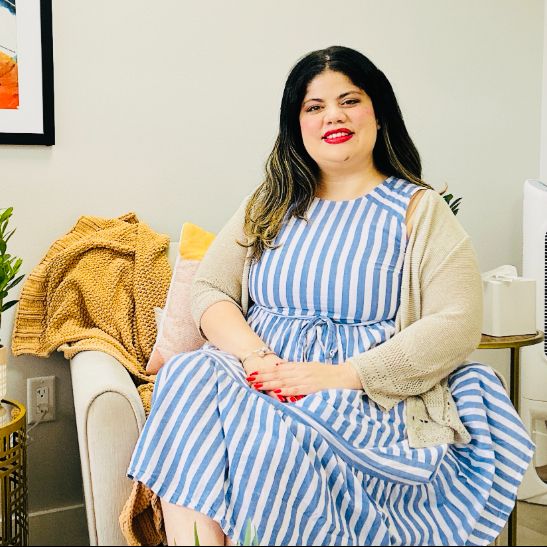How to Get Help for Bipolar Disorder in Orlando
If you’re ready to take the next step toward stability and support for Bipolar Disorder in Orlando, explore the MiResource directory to quickly find trusted, licensed therapists who match your goals, insurance, schedule, and cultural preferences. Our easy-to-use platform removes barriers to starting therapy by simplifying your search, offering clear profiles and availability, and guiding you to providers experienced in Bipolar Disorder care. Start now, feel supported from your first click, and connect with the right therapist in Orlando today.
Finding Licensed Bipolar Disorder Therapists in Your State
Choosing a therapist licensed in your state ensures they can legally treat you, your telehealth sessions comply with state rules, and your insurance is more likely to cover care—whether you’re searching in Orlando or anywhere else. MiResource lets you filter bipolar disorder therapists by state licensure so you only see providers authorized to practice where you live. All professionals listed are vetted, qualified, and legally able to provide care.
Exploring Local Community Resources for Bipolar Disorder in Orlando
Orlando’s diverse, tight-knit communities shape how people experience and seek care for bipolar disorder. The city’s large Puerto Rican and broader Latinx populations, strong faith communities, a substantial hospitality workforce with irregular shifts, and the collective resilience following the Pulse tragedy have fostered culturally aware, trauma-informed providers and bilingual services across neighborhoods like Mills 50, Parramore, and Lake Nona. For in-person sessions, many clients appreciate meeting near calming green spaces—think a decompression walk around Lake Eola after therapy—or close to medical corridors by AdventHealth in Health Village or Orlando Health near SoDo. Getting there is practical: SunRail stops at AdventHealth, Lynx Central, and Church Street, LYNX buses run along Colonial Dr (SR 50), Orange Ave, and Mills Ave (US 17-92), and parking ranges from downtown garages (Library Garage and Central Blvd Garage) to plentiful free street parking in College Park, Baldwin Park, and Audubon Park. When scheduling, plan around I-4 and SR 408 rush hours and tourist traffic near International Drive and Universal Blvd.
Local support is robust. NAMI Greater Orlando offers education and peer/family groups, with referrals for bipolar-specific care . The Mental Health Association of Central Florida provides the Outlook Clinic and navigation services for under- and uninsured residents . Aspire Health Partners operates comprehensive outpatient and crisis services across Orange County . For peer-led groups, check Depression and Bipolar disorder Support Alliance’s Florida listings for Orlando-area meetings . City and county resources—including Orange County’s Mental & Behavioral Health hub—connect residents to sliding-scale and crisis options . Major health systems also offer specialized programs: AdventHealth Behavioral Health in Orlando and Orlando Health Behavioral Health . Students can access UCF CAPS for counseling and referrals on the main campus .
What You Need to Know About Bipolar Disorder
Bipolar disorder is a condition that brings strong mood swings—periods of high energy and confidence and times of deep lows—that can affect how you think, feel, and act. With the right support and care in Orlando, you can manage symptoms, keep routines steady, and protect your relationships, work, and daily well-being.
Common Signs and Symptoms of Bipolar Disorder
Everyone’s experience is unique, but these are common patterns. Noticing them can be a first step toward getting support. Only a trained professional can diagnose bipolar disorder.
Manic or hypomanic symptoms (highs):
- Unusually elevated, excited, or irritable mood
- A sudden burst of energy or restlessness
- Needing much less sleep and still feeling wired
- Talking very fast; racing thoughts
- Feeling overly confident or invincible
- Being easily distracted
- Increased goal‑directed activity (projects, plans)
- Risky behaviors (spending sprees, risky sex, fast driving, substance use)
Depressive symptoms (lows):
- Persistent sadness, emptiness, or hopelessness
- Very low energy or fatigue
- Sleeping too much or too little
- Loss of interest in things you used to enjoy
- Appetite or weight changes
- Trouble concentrating or making decisions
- Feeling slowed down or, at times, agitated
- Thoughts of death or suicide
Mixed features and patterns:
- Signs of depression and mania at the same time (for example, feeling very agitated and hopeless)
- Mood swings that are more intense than typical ups and downs
- Episodes that last days to weeks, with periods of steadier mood in between
- Rapid cycling (four or more mood episodes in a year) for some people
- In severe episodes, possible hallucinations or unusual beliefs
Impact on daily life:
- Strain in relationships, work or school difficulties
- Financial or legal problems tied to impulsive actions
- Using alcohol or drugs to cope
If these patterns sound familiar for you or someone you care about in Orlando, consider reaching out to a mental health professional. If you or someone is in immediate danger or thinking about suicide, call or text 988, call 911, or go to the nearest emergency room.
Causes and Risk Factors for Bipolar Disorder
Bipolar disorder has many causes working together, including family history and differences in brain chemistry that can affect mood and energy. Past stress or trauma, sleep problems, and other mental health challenges can also play a role, and big life changes or ongoing stressors—like financial strain, relationship issues, or storm-related disruptions common in Central Florida—may trigger episodes. Substance use and certain medical conditions can make symptoms worse. It’s important to know this is a complex, multifactorial condition—not a personal failing—and help is available in the Orlando area.
How Bipolar Disorder Can Affect Daily Life
Bipolar disorder can make relationships feel unpredictable, with mood shifts that may lead to misunderstandings or conflict, like canceling plans during a low period or talking rapidly and oversharing during a high. At work or school, energy and focus can swing from highly productive to struggling with deadlines, attendance, or concentration. These changes can affect overall quality of life, including sleep, finances, and self-confidence, even when someone is trying their best. Getting care and support in Orlando can help create routines and skills that make daily life more steady and connected.
Treatment and Support Options for Bipolar Disorder
Evidence-based care includes mood stabilizers (e.g., lithium, valproate), atypical antipsychotics, and careful use of antidepressants, combined with psychotherapies like CBT, interpersonal and social rhythm therapy (IPSRT), family-focused therapy, and psychoeducation. Build a support network with a psychiatrist and therapist, involve family when possible, and use community resources and peer groups (e.g., NAMI, DBSA), crisis supports (988 Lifeline in the U.S.), and local mental health services. Self-help strategies—regular sleep and routines, medication adherence, mood tracking, stress reduction, exercise, limiting alcohol/substances, and a written crisis/safety plan—can strengthen stability between visits. Reaching out for coordinated, evidence-based treatment and support is a strong step toward managing symptoms and maintaining a meaningful life.
Frequently Asked Questions
1) What is Bipolar Disorder and how is it diagnosed?
Bipolar Disorder is a mental health condition marked by mood episodes that range from depression to periods of elevated or irritable mood called mania or hypomania. Diagnosis involves a thorough clinical evaluation, including your symptom history, duration and impact of episodes, medical review, and sometimes labs to rule out other causes. Psychiatrists, psychologists, and other licensed mental health professionals can diagnose Bipolar Disorder, and a primary care provider in Orlando can start the process and refer you to a specialist.
2) Who is most likely to experience Bipolar Disorder?
Bipolar Disorder can affect anyone, regardless of age, background, or identity. Risk factors include family history, certain patterns in brain chemistry, major stressors or trauma, sleep disruption, and substance use. Having risk factors doesn’t mean you will develop it, and many people in Orlando find support and effective care that helps them thrive.
3) How common is Bipolar Disorder?
About 2–3% of adults experience Bipolar Disorder in a given year, and roughly 4% experience it at some point in their lives. Many people live well with the condition once they have the right supports and treatment. If you’re seeking care in Orlando, know that you’re not alone and help is available.
4) Can Bipolar Disorder be prevented?
There’s no guaranteed way to prevent Bipolar Disorder, but early recognition and care can reduce the intensity and frequency of episodes. Protective factors include regular sleep, stress management, consistent routines, avoiding substance use, and strong social support. If you have a family history, staying attentive to mood changes and getting guidance early in Orlando can make a meaningful difference.
5) What should I do if I think I have Bipolar Disorder?
Start by reaching out to a primary care provider or a licensed therapist in Orlando to discuss your symptoms and get a referral for a full evaluation. Use MiResource to find therapists and psychiatrists in Orlando who specialize in Bipolar Disorder, read profiles, and schedule consultations. If you’re in crisis or thinking about harming yourself, call or text 988 or go to the nearest emergency room in Orlando for immediate support.
6) How can I talk to others about my Bipolar Disorder?
Choose a calm time and a trusted person, and share what Bipolar Disorder means for you in simple terms—what you experience and what helps. Set clear boundaries about what you’re comfortable discussing, and let people know how they can support you during mood changes. You might bring a short resource from your Orlando provider or MiResource, and invite questions at your own pace.













